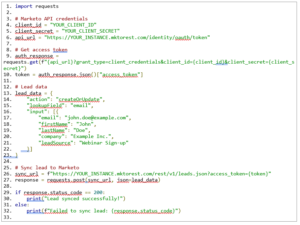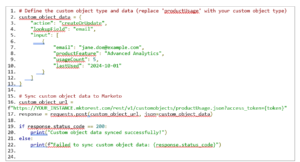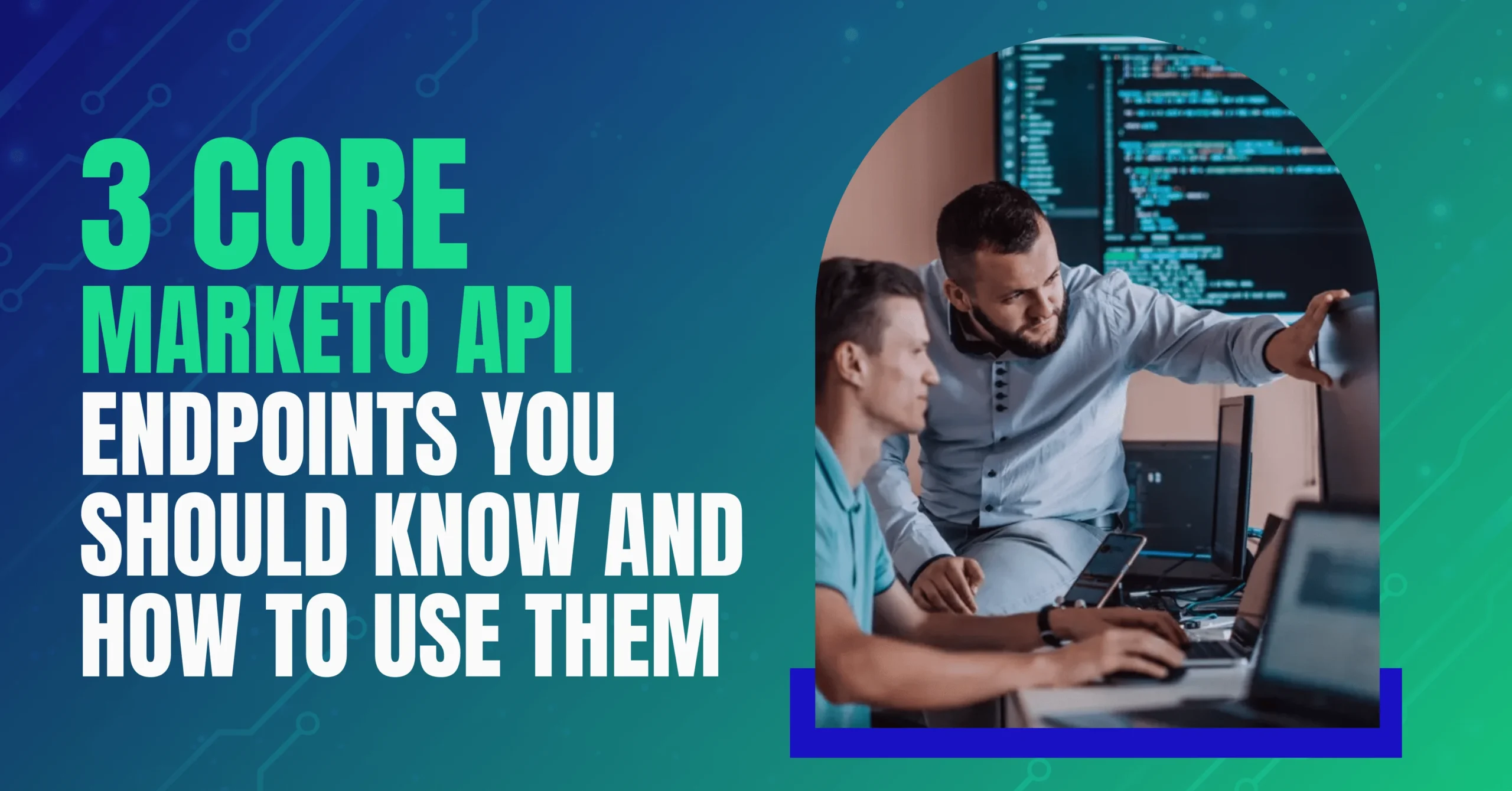When you first dive into the world of marketing automation, Marketo is like a playground full of potential. But the real power behind Marketo goes beyond its user interface—it lies in its robust API. If you want to truly harness Marketo’s full capabilities, becoming familiar with its API endpoints is crucial.
Marketo’s APIs allow you to push your automation and data integration to a new level, connecting marketing operations with other business systems seamlessly. Let’s explore three core API endpoints every marketer working with Marketo should know and how you can leverage them in practical, real-world scenarios.
Leads API: The Foundation of Data Management
At the heart of any marketing operation are your leads. Managing this data, syncing it with other platforms, and keeping it up to date is crucial. That’s where Marketo’s Leads API comes into play. Whether you’re retrieving lead information or adding new leads to your database, this endpoint is the go-to for all things lead-related.
Use Case: Syncing Leads from a Custom Application
Imagine you’ve developed a custom app where users can sign up for an exclusive webinar. You want to make sure that every sign-up is automatically pushed into Marketo as a lead, where they can be nurtured through automated campaigns.
Here’s how you would use the Leads API to achieve that:

This simple script sends new lead information to Marketo via the Leads API. The “createOrUpdate” action ensures that if the lead already exists (identified by their email), their record will be updated. This is incredibly useful when integrating Marketo with other systems, as it keeps your data fresh and prevents duplicates.
Campaigns API: Automating Marketing Actions
Once your leads are in Marketo, the next step is to engage them through marketing activities. That’s where the Campaigns API becomes your best friend. This endpoint allows you to trigger smart campaigns from external applications or systems, giving you control over Marketo’s marketing automation from the outside.
Use Case: Triggering a Follow-Up Email After an Event
Let’s say you’ve hosted that exclusive webinar, and now you want to send a personalized follow-up email to everyone who attended. Instead of manually adding people to the campaign in the UI, you can automate the entire process by calling the Campaigns API.
Here’s an example of how you’d trigger a follow-up campaign:

With just a few lines of code, you can automatically trigger a smart campaign to send follow-up emails. This saves time, eliminates manual tasks, and ensures that your attendees get timely, personalized communication.
Custom Objects API: Extending Data Flexibility
Sometimes, your data requirements go beyond what the standard lead and company objects offer. Maybe you need to store unique information like event attendance history, product usage data, or customer preferences. This is where the Custom Objects API comes in. It lets you create custom objects and associate them with leads to extend Marketo’s capabilities.
Use Case: Tracking Product Usage for Personalized Marketing
Suppose you offer a SaaS product, and you want to store product usage data within Marketo to personalize your marketing efforts based on how often leads use specific features. You can create a custom object to store this information and use it to trigger campaigns that are relevant to each user’s behavior.
Here’s how you would update a custom object with product usage data:

In this example, product usage data is synced to a custom object in Marketo, allowing you to personalize future marketing campaigns. For instance, you could send tailored emails to users who haven’t fully explored certain features, encouraging them to dive deeper into your product.
Final Thoughts
Marketo’s API is like a Swiss Army knife—it provides a range of tools that can be leveraged in multiple ways to create more personalized, efficient, and powerful marketing operations. Whether you’re syncing leads, triggering campaigns, or managing custom objects, these API endpoints offer flexibility and automation that can streamline your processes and make your marketing efforts more effective.
Understanding these key API endpoints—Leads, Campaigns, and Custom Objects—will allow you to build a more connected and responsive marketing ecosystem. And if you ever need help integrating or leveraging Marketo’s API for your unique needs, Brainiac Consulting is always here to assist.




